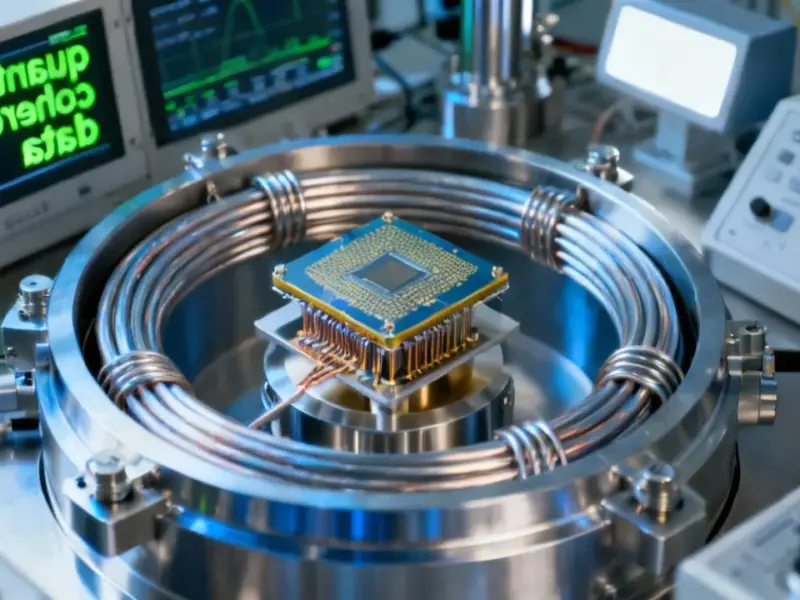According to Polygon, Nexon CEO Junghun Lee recently told Japanese outlet Game*Spark that “every game company is now using AI” and that the technology has “definitely improved efficiency” at studios like Arc Raiders developer Embark Studios. This comes after Arc Raiders stirred controversy by using AI-generated voices based on real actor recordings, similar to what Embark did with 2023’s The Finals. The studio argues this approach lets them quickly add voice lines for new content without recalling actors. But developers are pushing back hard – Strange Scaffold creative director Xalavier Nelson Jr. called Lee’s claims “bullshit” and said many studios aren’t using AI at all. Other developers from Kaizen Game Works, D-Cell Games, and Necrosoft joined in, with Necrosoft stating they’d “rather cut off our own arms” than use AI.
The great AI divide
Here’s the thing – we’re seeing a fundamental split in how different parts of the industry view AI tools. On one side, you have big publishers like Nexon and Square Enix pushing hard for AI adoption, framing it as inevitable and necessary for efficiency. They’re basically saying “everyone’s doing it, so you better figure out how to compete.” But then you have developers, particularly from indie studios, who see this as complete nonsense. They’re not just refusing to use AI – they’re actively calling out what they see as normalization of broken development processes.
And Nelson makes a compelling point about this being a “skill issue.” His studio released three games in ten months without touching AI – Clickolding, I Am Your Beast, and Teenage Mutant Ninja Turtles: Tactical Takedown between July 2024 and May 2025. That’s a pretty solid argument against the “we need AI to work faster” position. If a small team can output quality games at that rate using traditional methods, maybe the problem isn’t the tools – maybe it’s how the bigger studios are managing their workflows.
The real problem nobody’s fixing
What really stands out in Nelson’s full statement to Polygon is his analysis of why companies turn to AI. He identifies five reasons, but the most damning are the last two – using AI to paper over fundamental problems in development pipelines. If your process is so broken that you can’t schedule voice actors properly, or your writers and engineers can’t plan ahead for content needs, AI becomes a band-aid solution. It gives you something “good enough” to ship, but it doesn’t actually fix the underlying issues.
Think about it – when you use AI to generate seasonal cosmetics because you didn’t budget properly, you’re not solving the budgeting problem. You’re just hiding it behind generated content. Same with voice work – if your development cycle is so chaotic that you can’t coordinate with human talent, maybe the solution isn’t replacing humans with algorithms. Maybe you should fix your production schedule.
Is this really political?
Epic Games CEO Tim Sweeney weighed in with a curious take, calling AI opinions “political” and suggesting that views on whether it’s “net good” generally follow political lines. But is that accurate? The developers speaking out against AI aren’t doing so along clear political divides – they’re talking about creative integrity and development ethics. When Chi Xu from D-Cell Games says AI makes work “empty, vapid, and meaningless,” that’s not a left-right political stance. That’s an artistic position.
And Sweeney’s argument that competition will lead to better games rather than fewer jobs feels… optimistic. We’ve already seen what happens when automation enters creative fields – quality often suffers while corporate profits increase. Remember the backlash against Riot’s AI-generated trailer? Players can tell when something feels off, even if they can’t pinpoint why.
Where does this go from here?
We’re basically watching two competing visions for game development’s future play out in real time. On one side, the efficiency-at-all-costs model embraced by publishers who see games as products. On the other, the craft-focused approach from developers who see games as art. The reality is probably somewhere in between – some AI tools might genuinely help with repetitive tasks without compromising creativity.
But when studios start using AI for core creative work like writing and voice acting, that’s where the line gets blurry. Players deserve games made with human skill and intention, not algorithms filling gaps in broken processes. The question isn’t whether AI has a place in game development – it’s whether we’re using it to enhance creativity or just to cut corners.





Well written and engaging. A pleasure to read from start to finish.
Can you be more specific about the content of your article? After reading it, I still have some doubts. Hope you can help me.